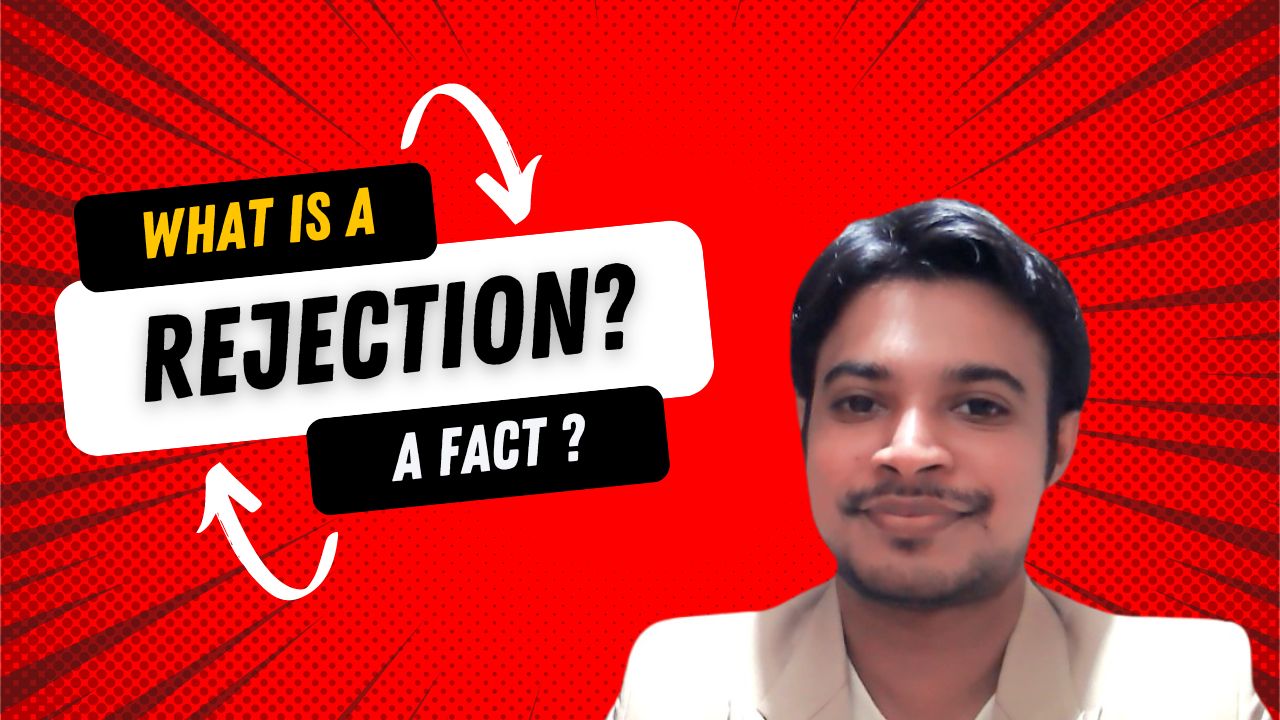Contact Suneth - Email: contact@sunethshanaka.com | WhatsApp: +65 9429 8613
Rejection is Not a Fact, It’s Just an Opinion: A New Perspective on Overcoming Rejection

Rejection is a universal experience, something everyone faces at various points in life. Whether it’s being turned down for a job, a romantic relationship, or an opportunity, the sting of rejection can leave deep emotional scars. However, it’s crucial to understand that rejection is not a definitive statement about your worth or abilities; rather, it is merely someone else’s opinion about your belief, idea, or potential.
Understanding Rejection as an Opinion
When you face rejection, it’s easy to internalize it as a fact—believing that the rejection defines you or proves that you’re inadequate. However, rejection is inherently subjective. It’s an opinion formed by someone else, often based on their personal preferences, circumstances, and perspectives, which may not fully reflect your true value or potential.
For instance, when an employer chooses another candidate over you, it doesn’t necessarily mean you’re not qualified. It might simply mean that the other candidate better aligned with the employer’s current needs or vision. Similarly, being rejected in a personal relationship doesn’t imply you’re unworthy of love; it could just mean that the other person’s desires or readiness didn’t match your own at that time.
The Power of Perspective
Shifting your perspective on rejection can be liberating. When you view rejection as an opinion rather than a fact, you begin to see it as part of a broader, more complex picture. Every individual or organization has their unique set of beliefs, priorities, and criteria that shape their decisions. Understanding this allows you to separate your self-worth from the opinions of others.
Moreover, recognizing rejection as an opinion helps you to see that it’s not the end of the road but rather a redirection. It’s an opportunity to learn, grow, and find a path that might be even more suitable for you. Many successful people faced numerous rejections before they achieved their goals. What set them apart was their ability to persevere, to see rejection as feedback rather than failure.
Building Resilience
Resilience is the key to overcoming the negative impact of rejection. By acknowledging that rejection is not a reflection of your intrinsic value, you can build the emotional strength to keep moving forward. This resilience comes from understanding that every rejection is just one person’s opinion, not a universal truth.
To build this resilience, it’s important to cultivate self-compassion and maintain a strong sense of self-belief. Remind yourself of your strengths, achievements, and the positive qualities that make you unique. Surround yourself with supportive people who reinforce your value and encourage you to keep striving toward your goals.
Moving Forward with Confidence
Once you’ve redefined rejection as an opinion rather than a fact, you can approach challenges with renewed confidence. This mindset empowers you to take risks, knowing that rejection is not a verdict on your abilities, but simply a part of the journey toward success.
Remember, every rejection you face is just one step closer to finding the right opportunity, the right people, and the right path for you. Embrace the lessons that come with rejection, and use them to refine your approach, sharpen your skills, and grow as an individual.
Rejection is not a fact; it is just an opinion formed by another person based on their own beliefs, circumstances, and preferences. By understanding this, you can free yourself from the negative emotions often associated with rejection and view it as a stepping stone to greater opportunities. With resilience, self-compassion, and a positive perspective, you can navigate the ups and downs of life with confidence, knowing that rejection is not the end but merely a part of your journey to success.



